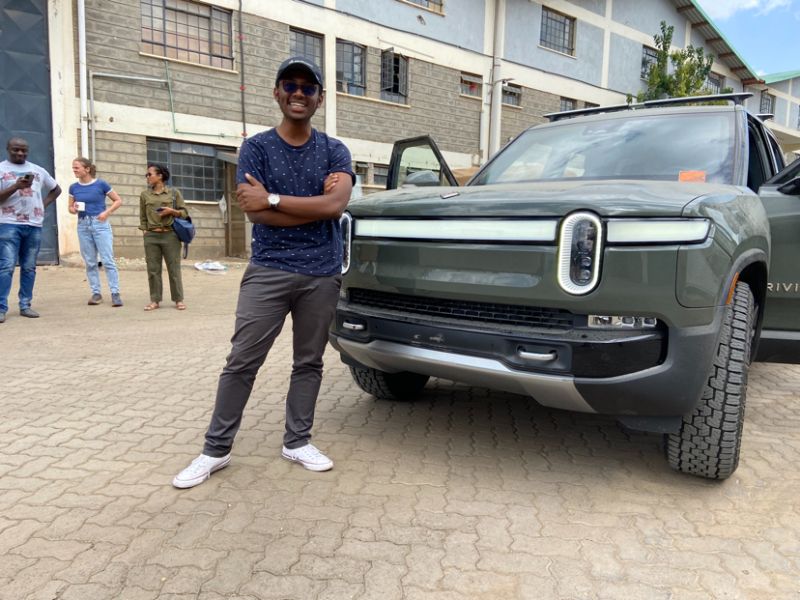Rivian R1T trucks have been spotted in Kenya recently. Rivian Automotive, Inc. is an American electric vehicle automaker and automotive technology company founded in 2009.
At least three R1T trucks were sighted on the back of a cargo truck traveling down Mombasa Road on Tuesday by a Twitter user.
Several LinkedIn and Twitter users published photographs and videos of the R1Ts on Wednesday, indicating that the electric truck’s first stop was at Roam (formerly Opibus), a firm that specializes in electric motorcycles, buses, charging infrastructure, and energy systems.
“Got an opportunity to experience the Rivian truck today. It was great opportunity to test drive it, charge it and learn more about its amazing cool features. It’s truly an amazing electric vehicle and a trailblazer for EVs here in Kenya.” Eric Okumu, an Electric Vehicle Research and Development Engineer at Roam shared on his LinkedIn.
Erick Githinji, an R&D CAD Engineer at Roam, was one such user who shared a photo of himself with the R1T at the company’s workshop.

Recently, Charles Mwangi, who helped kick-start the electric-vehicle maker’s manufacturing process left the company.
Mwangi, a former Tesla Inc executive, served as Executive Vice President from May 2020 at Rivian. He brought the R1T pickup truck and R1S SUV to production in late 2021.
It is not yet known whether he is involved in the trucks’ presence in the country. Reacting to the video of the trucks atop a truck, he said, “Finally!!! This is super exciting.”
About The Rivian R1Ts
The R1T is an electric all-wheel drive pickup truck with four electric motors, lightning-quick acceleration, and an estimated range of 314 miles. Each Rivian wheel is propelled by its own electric motor. The R1T has up to 835 horsepower and can reach 60 mph in 3.3 seconds.
According to Rivian, each R1T can haul more than 11,000 pounds and has a payload capacity of 1760 pounds.
The Rivian R1T starts at $67,500 (Ksh 7,889,400) on the Rivian Website. Total landing costs are obviously higher.
Word on the street is that a certain wildlife conservation NGO in Kenya has shipped in these futuristic looking vehicles. However, the trucks are LHD (Left Hand Drives) which could mean they’re more likely to be in transit as LHD imports are no longer permitted in Kenya.























![The ultimate buyer’s guide for choosing the best TV [2023]](https://thenetick.co.ke/storage/2023/08/design-medium-360x180.jpg)



![5 Best AI Video Editor Tools [2023]](https://thenetick.co.ke/storage/2023/07/Featured-Image-360x180.png)


















